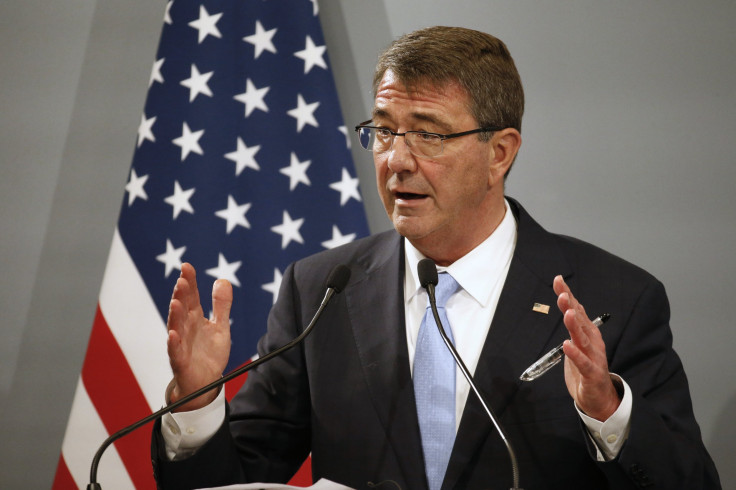Pentagon Chief Calls For Better Cooperation On Data Security, Encryption

U.S. Defense Secretary, Ash Carter called on top Silicon Valley entrepreneurs and innovators to play a bigger role in national security, highlighting the U.S. military’s support for data security and strong encryption.
Speaking at the Commonwealth Club in San Francisco on Tuesday, Carter urged greater cooperation between private industry and the public sector on data security and said that the U.S. Department of Defense is the largest user of encryption in the world. Strong encryption “is a good thing,” Carter said Tuesday, according to media reports.
While Carter did not directly address the ongoing controversy between iPhone maker Apple Inc. and the U.S. Government over the FBI's request to bypass the security features on an iPhone used by one of the San Bernardino, California, shooters, Carter told reporters that it would be “unreasonable” to let one particular case dominate the debate on how to handle data security.
“As we together engineer approaches to overall human security in the information age, I know enough to recognize that there will not be some simple, overall technical solution — a so-called 'back door’ that does it all,” Carter said, appealing to Silicon Valley heads to work with policy makers to solve the “complex challenges” strong encryption presents to law enforcement.
Carter also warned that a stand-off between Silicon Valley and federal authorities over the issue could encourage other countries such as China and Russia to set encryption standards on their own terms.
“It is easy to see wrong ways to do this,” Carter said. “One would be a law hastily written in anger or grief. Another would be to have the rules be written by Russia or China.”
On Tuesday, Apple General Counsel Bruce Sewell said FBI's attempts to get a court order forcing the company to build a so-called backdoor into the software used in iPhones “cut off the debate” on encryption technology.
© Copyright IBTimes 2025. All rights reserved.





















